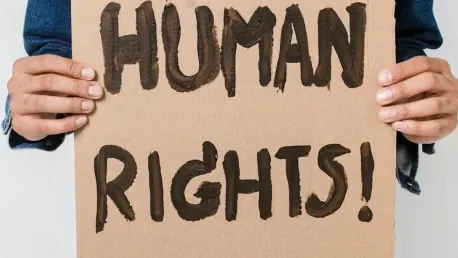Egypt’s recently proposed draft Criminal Procedure Code (CPC) has been met with substantial criticism from a coalition of major human rights organizations, including Amnesty International, Dignity, Human Rights Watch, and the International Commission of Jurists. These groups argue that the draft legislation undermines fair trial rights and grants unchecked power to law enforcement, further entrenching existing abusive practices.
Proposed Legislation’s Flaws
The new draft CPC does little to curb the prevalent misuse of pretrial detention, commonly employed to silence critics and dissidents. Instead of delivering much-needed reforms, it appears to perpetuate impunity for law enforcement officials by minimizing accountability for abuses. Additionally, the draft expands prosecutorial powers in ways that could facilitate more human rights violations, raising alarms among legal experts and activists alike.
Criticism from Various Entities
A significant number of professional groups within Egypt, including the Journalists’ and Lawyers’ Syndicates, have strongly denounced the draft CPC. They argue that it contains unconstitutional elements that could seriously hamper defense rights and undermine the fairness of public trials. These criticisms underscore the draft’s potential to exacerbate rather than resolve systemic issues within Egypt’s criminal justice system.
International Human Rights Standards
The draft CPC falls dramatically short of international benchmarks for detainees’ rights and fair trial standards. It fails to ensure timely judicial oversight of detention, thus enabling extended arbitrary detentions without sufficient checks and balances. Moreover, the new provisions grant prosecutors excessive authority to conduct interrogations without the presence of defense attorneys under the guise of “revealing the truth,” further compromising fair trial rights.
Overarching Trends
Historically, Egyptian authorities have frequently modified the CPC and other legal frameworks to weaken judicial independence and suppress dissent. This current draft represents a continuation of this troubling trend. The proposed changes would further entrench the authority of prosecutors, thereby perpetuating practices such as arbitrary detention, torture, and enforced disappearances. Despite some superficial amendments aiming to shorten pretrial detention periods, these limits remain unreasonably long, with mechanisms in place to extend detention without proper judicial review.
Consensus Viewpoints
There is a broad consensus among international human rights organizations and local professional bodies that the draft CPC would exacerbate the current injustices in Egypt’s legal system. These groups call for genuine legal reforms that align with international human rights standards and ensure proper consultation with diverse stakeholders, highlighting the need for a justice system that truly upholds the principles of fairness and transparency.
Main Findings
The draft CPC appears to reinforce, rather than mitigate, the repressive practices already embedded in Egypt’s legal system. By codifying measures like video conferencing for hearings without addressing their fair trial implications, the draft law risks worsening the conditions faced by defendants. Additionally, the draft maintains provisions that shield security officials from accountability for acts of torture and enforced disappearances, thereby fostering a culture of impunity.
Objectivity and Clarity
While presenting detailed criticisms, the article remains focused and objective, offering a comprehensive argument against the proposed amendments to Egypt’s CPC. It highlights the troubling legislative trends, the immediate and broader implications of the draft CPC, and the necessity of aligning legal reforms with international standards.
Conclusion
Egypt’s newly proposed draft Criminal Procedure Code (CPC) has drawn significant criticism from major human rights organizations, including Amnesty International, Dignity, Human Rights Watch, and the International Commission of Jurists. These groups argue that the draft legislation threatens fair trial rights and grants unchecked power to law enforcement. Critics claim that the new CPC will only reinforce existing abusive practices, further compromising the already precarious state of justice in the country. According to these human rights bodies, the proposed legal framework could lead to a reduction in accountability for security forces and an increase in arbitrary detentions, forced disappearances, and torture. The organizations collectively emphasize that adopting such a code could represent a major step backward for human rights in Egypt. They call for substantial amendments to ensure the code aligns with international human rights standards and truly protects the rights of all individuals, ensuring fair trials and limiting law enforcement excesses. They argue that without these changes, the draft CPC could endanger personal freedoms and undermine the fight against systemic abuse.









